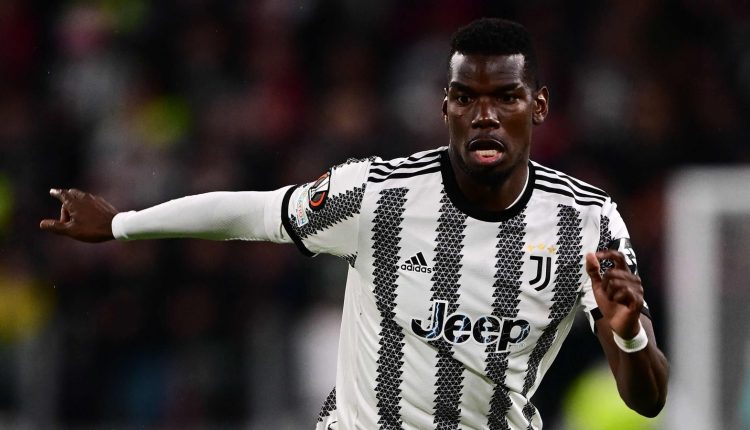It has to be one of the most tear-inducing tragedies in the world of football in recent years. Nobody died, but Paul Pogba certainly did himself a great disservice.
At the age of 25, he had won the football World Cup with France in Russia in 2018. In fact, he was one of the goal-scorers for Les Blues in the final against Croatia. Football history is full of big, extremely talented names who, despite spending years in the game, walk off into the sunset without experiencing the delight that comes from winning the World Cup. Besides, he was playing for Premier League club Manchester United, one of the biggest clubs in the world and still very popular, even though the last few years have seen it decline in terms of achievements on the pitch.
Pogba had the world at his feet, looking to build a legacy in the manner of Zinedine Zidane, a great French midfielder of his time. But things panned out in a totally unexpected manner. In July 2022, he re-joined Italian giants Juventus on a free transfer after his contract expired at Old Trafford. But persistent injury problems saw him feature only in a handful of games for them. They were so bad that he couldn’t also be part of the team that played in the 2022 World Cup in Qatar, a team that ended runners-up after losing to Argentina in the final.
So troublesome were his injuries that he could only play six Serie A games for Juventus in 2022-23 and accumulated just a total of 108 minutes on the pitch. In 2023-24, he played just two Series A games and accumulated just a total of 51 minutes.
He was struggling in a big way. But there was some hope that one day – and that one day didn’t appear far – he would beat all his injury issues and be back to the familiar territory of terrorising opposition defenders.
But then a bombshell came along. In September 2023, he was provisionally suspended from playing after a random drugs test revealed high levels of testosterone in his system. It may be noted that beyond a level, the hormone can give an athlete an unfair advantage.
The test was carried out in the previous month in August after a 3-0 win against Udinese. He was part of the match-day squad but warmed the bench as a substitute.
What next for Pogba
Italy’s national anti-doping tribunal (NADO) confirmed the results in October post the second sample results. Months later on Thursday, the NADO slapped him with a four-year ban which, in all likelihood, will see to the end of Pogba, the footballer.
The 30-year-old midfielder is expected to appeal against the verdict as he should, but the way tribunal matters normally drag on, it’s all over bar the shouting for Pogba the footballer, irrespective of the outcome of the appeal. As things stand, he is unable to play until 2027. In September, his agent Rafaela Pimenta had said the violation, if any, wasn’t done wilfully.
One feels bad for Pogba. He was destined for greatness for sure. At Manchester United (whom he joined for then-record transfer fee of $115.98 million in 2016) and in France colours, he won hearts through his screamers and control of the ball. France manager Didier Deschamps saw leadership qualities in him at one point. He was indeed highly rated. Alas, all those qualities will lose potency over time since the stigma of the violation is going to take precedence over everything else. It’s pretty common in the sporting world. It’s not one of those offenses that is forgiven easily.
Pogba is going to pay the price for what he has done, wilfully or otherwise, but it’s football’s loss at the end of the day. Talents like Pogba don’t come often and his departure from the scene without realising his full potential is a massive, massive loss. It’s a tragedy that has few parallels.


